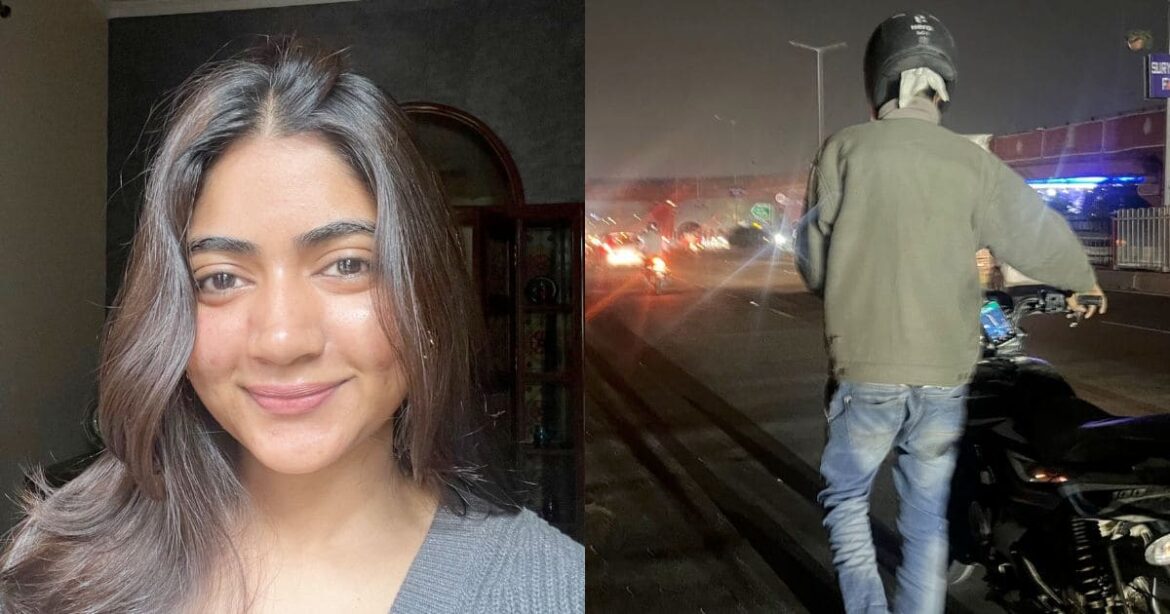Sometimes, the most touching stories do not come from grand moments. They come from everyday life, when ordinary people choose empathy instead of frustration. That is exactly what happened in Jaipur recently, when a woman decided to walk 1 km with her Ola bike driver after his vehicle ran out of fuel. What followed sparked a huge debate on the internet about kindness, expectations, privilege, and perspective.
The story was shared by Ayushi Gupta, a social media specialist, in a heartfelt LinkedIn post. Her experience resonated with thousands of readers across India, reminding everyone that empathy still exists, even if it sometimes goes unnoticed.
The Ride That Didn’t Go as Planned
Ayushi had booked an Ola bike to head home from work. It was a normal weekday, just like any other. But midway through the journey, the bike ran out of petrol. The driver stopped and told her that they would have to walk to the nearest petrol pump.
In that moment, Ayushi had two choices:
- End the ride and book another one.
- Walk with the driver to help him get petrol.
Most people would choose the first option, especially after a long and tiring day. But Ayushi chose the second. Not because she had to, but because she felt empathy.
She later wrote,
“I thought, it must be so tough for him. At least I will get my evening walk in.”
So they walked together, talking very little, simply sharing the same journey. It was not a dramatic moment. It was just two humans walking side by side.
The Emotional Turn
After filling petrol and completing the journey, Ayushi reached her home and paid the fare of Rs 101 as shown in the app. She started walking toward her house, thinking the incident was over.
But the driver called her back.
He told her the fare was actually Rs 108, because the detour to the petrol pump increased the distance. He requested the extra Rs 7.
Ayushi was taken aback. She had just walked 1 km with him to help him. She stayed patient despite the delay. Yet the driver asked for more.
She gave the Rs 7 but walked home with a heavy heart. She later cried in front of her mother. Not because of the money, but because it felt like her kindness had no value.
She said,
“It felt like my empathy was invisible.”
Her brother laughed when she cried over just Rs 7, but her mother understood.
A Mother’s Words That Changed Everything
Ayushi’s mother listened quietly and then said something that stayed with her.
“Sometimes people are so caught up in their own struggles that they cannot see the kindness around them.
Your kindness is not worthless. He just could not see it.”
This was the core of Ayushi’s story.
Kindness is not a transaction.
We don’t give kindness to receive something back.
We give it because it reflects who we are.
Why the Story Went Viral
The post touched a nerve. It showed that:
- People today are tired.
- Everyone is dealing with stress, financial pressure, emotional weight.
- And sometimes, we feel unseen even when we are doing our best.
Thousands of comments poured in.
Some said the driver may have needed the Rs 7 more than we understand. For someone living on daily income, every rupee counts. The extra charge might have been his way of trying to survive another day.
Others applauded Ayushi, saying we need more people like her in the world.
The discussion became much larger than a 1 km walk or Rs 7.
It became a conversation about privilege, compassion, emotional expectations, and survival struggles.
The Bigger Lesson: Kindness Is Not About Return
Many people assume kindness works like a balance sheet.
If I am kind to you, you should be kind back.
But real kindness does not work that way.
It is something we choose even when we receive nothing in return.
Ayushi ended her post with a line that deeply moved many readers:
“I still believe in choosing kindness. Even when it goes unseen.”
In a world where everyone is in a rush, where we choose convenience and self-protection first, this story reminds us that humanity is still alive, even if sometimes unnoticed.
Why This Story Matters to India
In Indian cities:
- Delivery boys drive long distances for very low pay.
- Cab and bike drivers work 12–14 hours a day to support families.
- People often face emotional and financial pressures silently.
- This story encourages us to look at one another with softer eyes.
A simple question can change someone’s day:
“Are you okay?”
“Do you need help?”
Kindness may not always be acknowledged.
But it always matters.
Final Thoughts
Ayushi’s story is not about Rs 7.
It is about the courage to stay kind in a world that does not always appreciate it.
Kindness is not something you do for recognition.
It is something you do because it reflects the kind of person you want to be.
Her journey reminds us:
- Empathy is powerful.
- Everyone is fighting their own battles.
- Choose kindness anyway.

